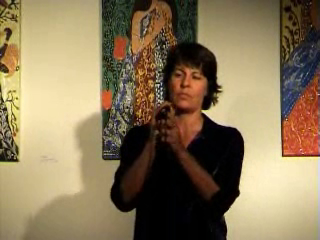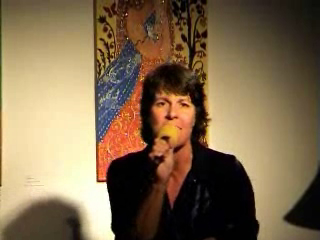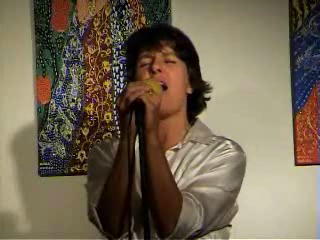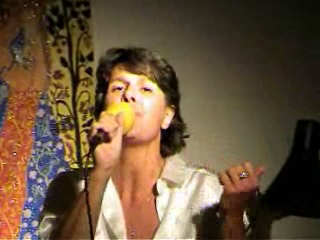|
About Lizzie Líbera
|
|
| Ever since the rebellious
age of fifteen - when she took over her little sister’s
guitar - Lizzie Libera dedicated herself to music. There is
a wild and untamed spirit in early songs like the “Rainy
Day Blues” and “Black Diamonds”. In those days
she also founded a girrrrl group called “Mahakali”,
which promptly demanded “Patriarchy down the drain!”
The same spirit made her hitch-hike all over Western Europe,
soon after leaving her hometown at the age of eighteen. Lizzie
Libera lived in Rome, London, Stockholm, Moscow and St. Petersburg.
Along the road she picked up all kinds of musical influence,
which she formed into a very particular mixture of melodies
and lyrics. |
 |
| At the same time she set music to
the lyrics of famous poets like Hermann Hesse, Rainer Maria
Rilke, Mascha Kaléko and Paul Verlaine. Lizzie Líbera
also translated poems of the Russian poetesses Anna Achmatova
and Sinaida Gippius into German and arranged them musically.
Another talent can be heard in the transcriptions of the songs
of Italian “Cantautori” (songwriter) like Fabrizio
de André and Francesco de Gregori, which she sings in
both Italian and German. |
 |
| When Lizzie Líbera moved
to (East-) Berlin in 1991, she began to write lyrics in German,
too. As a result the compilation “100% Líbera”
- which came out in form of two CDs - represents her songs in
German and English. |
 |
Lizzie Líbera
is one of the first artists inside Europe, who has combined
words and music into a new context - and thus created a bridge
between people from different nations in the past and the future.
Or to put it in her own words: “She doesn´t belong
to no state and no land, she will only follow the roads inside
her hands...”
(extract from the song “She”) |
 |
|
|
Pictures taken from the CD release
concert at S.U.S.I. in Berlin on June 20th, 2008
|
| top |
|
|